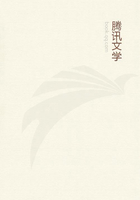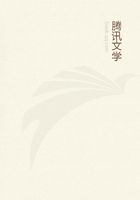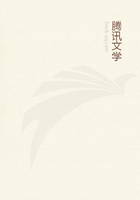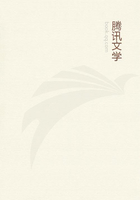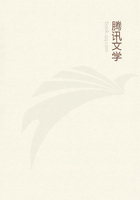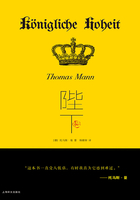"His Takhallus or poetical name (Khayyam) signifies a Tent-maker, and he is said to have at one time exercised that trade, perhaps before Nizam-ul-Mulk's generosity raised him to independence. Many Persian poets similarly derive their names from their occupations; thus we have Attar, 'a druggist,' Assar, 'an oil presser,' etc. Omar himself alludes to his name in the following whimsical lines:--"'Khayyam, who stitched the tents of science, Has fallen in grief's furnace and been suddenly burned;The shears of Fate have cut the tent ropes of his life, And the broker of Hope has sold him for nothing!'
Though all these, like our Smiths, Archers, Millers, Fletchers, etc., may simply retain the Surname of an hereditary calling.
"We have only one more anecdote to give of his Life, and that relates to the close; it is told in the anonymous preface which is sometimes prefixed to his poems; it has been printed in the Persian in the Appendix to Hyde's Veterum Persarum Religio, p. 499; and D'Herbelot alludes to it in his Bibliotheque, under Khiam.--"'It is written in the chronicles of the ancients that this King of the Wise, Omar Khayyam, died at Naishapur in the year of the Hegira, 517 (A.D. 1123); in science he was unrivaled,--the very paragon of his age. Khwajah Nizami of Samarcand, who was one of his pupils, relates the following story: "I often used to hold conversations with my teacher, Omar Khayyam, in a garden; and one day he said to me, 'My tomb shall be in a spot where the north wind may scatter roses over it.' I wondered at the words he spake, but I knew that his were no idle words. Years after, when I chanced to revisit Naishapur, Iwent to his final resting-place, and lo! it was just outside a garden, and trees laden with fruit stretched their boughs over the garden wall, and dropped their flowers upon his tomb, so that the stone was hidden under them."'""Philosophe Musulman qui a vecu en Odeur de Saintete dans sa Religion, vers la Fin du premier et le Commencement du second Siecle," no part of which, except the "Philosophe," can apply to our Khayyam.
The Rashness of the Words, according to D'Herbelot, consisted in being so opposed to those in the Koran: "No Man knows where he shall die."--This story of Omar reminds me of another so naturally--and when one remembers how wide of his humble mark the noble sailor aimed--so pathetically told by Captain Cook--not by Doctor Hawkworth--in his Second Voyage (i. 374). When leaving Ulietea, "Oreo's last request was for me to return. When he saw he could not obtain that promise, he asked the name of my Marai (burying-place).
As strange a question as this was, I hesitated not a moment to tell him 'Stepney'; the parish in which I live when in London. I was made to repeat it several times over till they could pronounce it;and then 'Stepney Marai no Toote' was echoed through an hundred mouths at once. I afterwards found the same question had been put to Mr. Forster by a man on shore; but he gave a different, and indeed more proper answer, by saying, 'No man who used the sea could say where he should be buried.'"Thus far--without fear of Trespass--from the Calcutta Review. The writer of it, on reading in India this story of Omar's Grave, was reminded, he says, of Cicero's Account of finding Archimedes' Tomb at Syracuse, buried in grass and weeds. I think Thorwaldsen desired to have roses grow over him; a wish religiously fulfilled for him to the present day, I believe. However, to return to Omar.
Though the Sultan "shower'd Favors upon him," Omar's Epicurean Audacity of Thought and Speech caused him to be regarded askance in his own Time and Country. He is said to have been especially hated and dreaded by the Sufis, whose Practise he ridiculed, and whose Faith amounts to little more than his own, when stript of the Mysticism and formal recognition of Islamism under which Omar would not hide. Their Poets, including Hafiz, who are (with the exception of Firdausi) the most considerable in Persia, borrowed largely, indeed, of Omar's material, but turning it to a mystical Use more convenient to Themselves and the People they addressed; a People quite as quick of Doubt as of Belief; as keen of Bodily sense as of Intellectual; and delighting in a cloudy composition of both, in which they could float luxuriously between Heaven and Earth, and this World and the Next, on the wings of a poetical expression, that might serve indifferently for either. Omar was too honest of Heart as well of Head for this.
Having failed (however mistakenly) of finding any Providence but Destiny, and any World but This, he set about making the most of it;preferring rather to soothe the Soul through the Senses into Acquiescence with Things as he saw them, than to perplex it with vain disquietude after what they might be. It has been seen, however, that his Worldly Ambition was not exorbitant; and he very likely takes a humorous or perverse pleasure in exalting the gratification of Sense above that of the Intellect, in which he must have taken great delight, although it failed to answer the Questions in which he, in common with all men, was most vitally interested.

